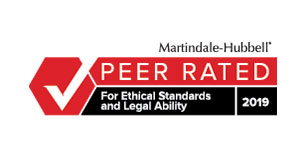Injuries can happen at any West Virginia work site. While they may be more common at an industrial plant, mine, or construction site, injuries can also happen in a warehouse, at a retail store, or at an office.
If you’ve been injured at work, you might be able to sue your employer for compensation for your medical bills and lost wages. However, the laws that govern lawsuits for work injuries are complicated, and sometimes employers are protected from personal injury suits. The best way to know whether you can sue your employer for a workplace injury is to talk with an experienced attorney.
At Prim Law, we know that workplace accidents are often caused by an employer’s negligence or lack of safety measures. We have helped many West Virginia residents and their families pursue compensation for workplace injuries or wrongful death.
If you’ve been hurt on the job, schedule a free consultation to discuss your case. Contact us online or call our team in Hurricane, West Virginia, at 304-201-2425.
Workers’ compensation protects West Virginia employers from lawsuits
If you’re injured at work, the first thing to figure out is whether your employer had workers’ compensation insurance. West Virginia law requires most businesses to carry a workers’ compensation policy. You will probably have to file a workers’ comp claim and accept the offered settlement for your injuries. Unfortunately, many workers’ compensation claims don’t provide enough money to cover all medical bills or lost wages.
West Virginia is like most states in that it allows employers to avoid lawsuits from their employees as long as they carry workers’ compensation insurance. By accepting a workers’ comp settlement, you agree not to sue your employer. However, West Virginia does have a few exceptions that may allow you to initiate a personal injury or wrongful death lawsuit. An attorney can help you understand your legal options.
Contractors and work injury lawsuits
It’s essential to note that workers’ compensation only applies in cases where there is an “employer-employee relationship.” That means that non-employees, such as independent contractors or sub-contractors, may be eligible to sue a company for an injury that occurs on a job site. For example, if you are a subcontractor who is injured on a construction site, you may be able to file a personal injury lawsuit.
When can you sue your employer for a workplace injury in West Virginia?
West Virginia’s state laws do allow employees to sue their employers in a few specific cases. If you can prove that you were injured on the job due to your employer’s “deliberate intent,” then you can pursue a personal injury lawsuit. Lawsuits involving this rule are known as Mandolodis claims. In West Virginia, workers’ compensation insurance doesn’t protect employers from lawsuits for deliberate intent.
To have a successful Mandolidis claim, you must be able to prove that you were injured because your employer knowingly placed you in a dangerous situation. There may be rare cases when an employer intends to harm the employee and causes them to be injured on the job. However, most Mandolidis claims are about intentional negligence or a disregard for safety regulations.
For example, if your employer knew there was structural damage in a mine and sent you in anyway, you may be able to sue them for an injury you sustained when the mine collapsed. To prove deliberate intent, you must show several things:
- There was an unsafe or dangerous working condition that posed a high risk of death or injury to you (the employee)
- Your employer knew specifically about this unsafe situation and its risks
- The dangerous situation violated federal or state safety regulations or industry safety standards
- Your employer, knowing about this unsafe condition, put you at risk by placing you in this dangerous environment
As you can see, a Mandolidis lawsuit can be very complicated. A personal injury lawyer can listen to your story and help you understand whether you have the option to pursue a lawsuit.
Talk to an attorney about your work-related injury
In many cases, employers are protected from personal injury lawsuits by their workers’ compensation insurance policies. However, there are some instances where you may be able to sue your West Virginia employer if you get injured at work. If you’re a contractor, workers’ comp doesn’t apply to you. If you can prove that your employer knowingly and deliberately endangered you, it may be grounds for a Mandolidis claim.
Understanding West Virginia’s rules about workplace injury lawsuits can be challenging. At Prim Law, we are here to help. Our personal injury lawyers have helped many victims and their families get fair compensation after a workplace injury.
Learn about your options by scheduling a free consultation online or calling our office in Hurricane at 304-201-2425. To get more information about workplace injury lawsuits, like us on Facebook.



